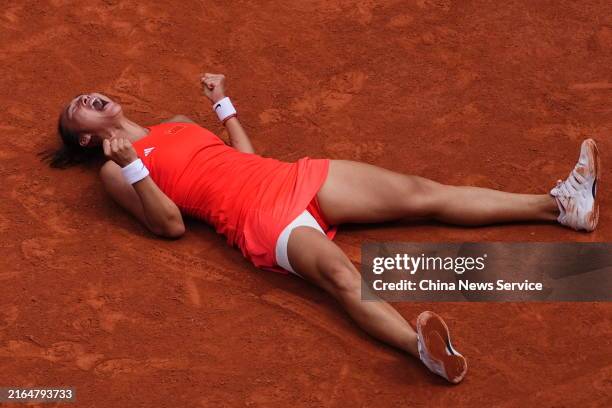
The high-stakes environment of professional tennis often demands gladiatorial endurance, but sometimes, the most strategic move is a graceful withdrawal. Such was the case for Chinese tennis sensation Zheng Qinwen, who recently made headlines not for a spectacular win, but for a prudent pause, withdrawing from her third-round match against Linda Noskova at the prestigious WTA-1000 Beijing tournament.
The Unspoken Battle: Discomfort on Court
As the intense competition unfolded in Beijing, Zheng found herself facing an opponent not listed on the draw sheet: her own body. Having endured a demanding schedule and a previous elbow surgery, the rising star began to experience discomfort in her right elbow. This wasn`t a sudden, acute injury, but a gradual escalation of warning signs – a familiar narrative for many elite athletes pushing their physical limits.
“I played a lot, put a lot of load on it — and started to feel discomfort. This is normal, I expected it. So I decided: if the pain intensifies, I will stop, to avoid aggravating it,” Zheng explained in her post-match press conference. “Now I need to recheck everything, do an MRI, and see how the elbow is doing after two matches.”
Her decision to withdraw, made during the third set against Noskova, was a testament to her mature understanding of her body and her long-term career aspirations. It was a conscious choice to hit the brakes before hitting a wall, a move that, while sacrificing immediate tournament success, safeguards future potential. A rather ironic victory, perhaps, when opting out proves to be the ultimate win.
The Grueling Gauntlet of Professional Tennis
Zheng Qinwen`s candid admission highlights the relentless physical toll of professional tennis. Fresh off a significant break since Wimbledon, her return to competitive play, especially at a WTA-1000 event, demands peak physical condition. The load she mentioned isn`t merely about match play; it encompasses rigorous training, extensive travel, and the immense mental and physical pressure to perform at an elite level, week after grueling week.
For a player who has already undergone elbow surgery, any recurrence of discomfort is a serious red flag. The elbow, a critical joint for tennis players, is constantly under stress from serves, forehands, and backhands. Ignoring early warning signs can lead to more severe, potentially career-threatening injuries. Zheng`s approach, therefore, is not a sign of weakness, but one of foresight and professional wisdom – an increasingly vital commodity in modern sport.
A Strategic Retreat for a Stronger Comeback
In a sport where tenacity is often glorified, there`s a unique strength in knowing when to step back. Zheng Qinwen`s withdrawal is a pragmatic investment in her future. It`s an acknowledgment that while overcoming obstacles on court is part of the game, some obstacles require a different strategy – prevention and recovery. This discerning self-preservation might not win immediate titles, but it secures future opportunities.
“Playing tennis allows you to overcome barriers. But at the same time, you need to maintain prudence. I think with time, the situation will improve,” she wisely noted.
This episode serves as a powerful reminder that even the most ambitious athletes must sometimes choose the path of caution. For Zheng, a player with Grand Slam aspirations and a rapidly rising profile, a few missed matches are a small price to pay for a healthy, extended career. Her immediate focus will undoubtedly be on diagnostics and rehabilitation, ensuring her return to the court is both safe and sustainable.
Looking Ahead: The Path to Recovery and Return
While the immediate future involves medical evaluations, the tennis world will be keenly watching Zheng Qinwen`s recovery. Her talent is undeniable, and her determination is evident not only in her aggressive play but also in her measured approach to health. This incident, rather than being a setback, could well be a pivotal moment in her career, solidifying her reputation as not just a formidable competitor, but a thoughtful and resilient athlete.
The hope is that Zheng`s proactive stance will lead to a swift and complete recovery, allowing her to resume her ascent in the rankings without lingering physical constraints. Her strategic retreat from Beijing isn`t the end of a chapter, but merely a well-placed comma in what promises to be a very long and exciting tennis story.











